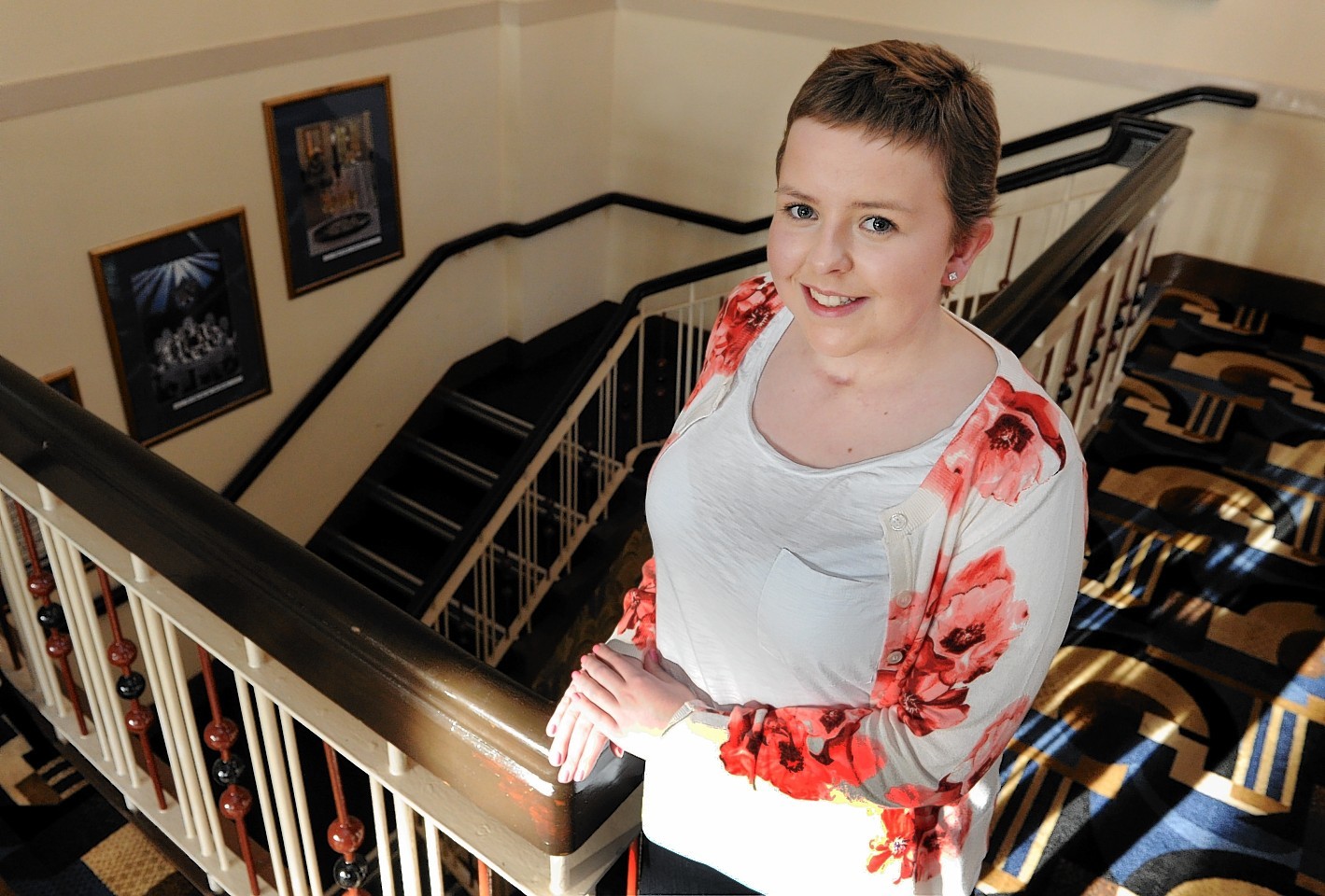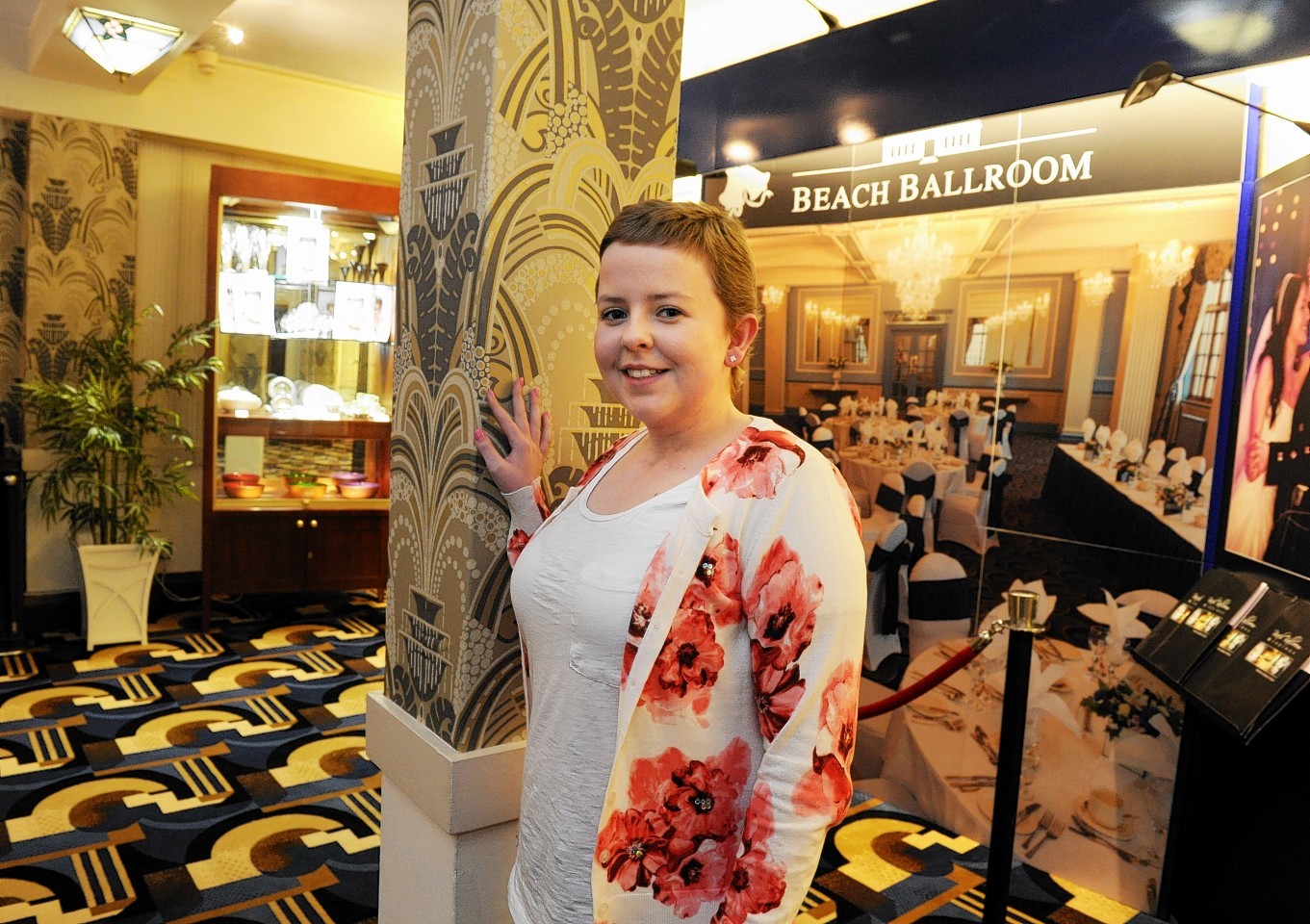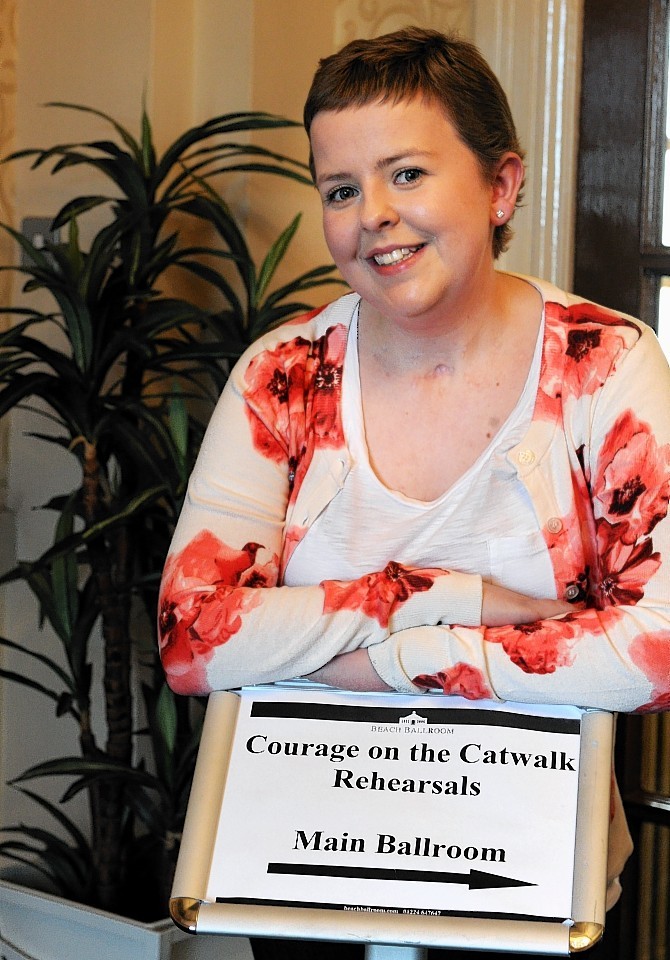In a special Press and Journal series, women who have battled cancer tell their inspirational – and often heartbreaking – stories.
This weekend, they will take part in the third Courage on the Catwalk show in Aberdeen, organised by cancer charity Friends of ANCHOR. Today, Ashleigh Barbour talks to 20-year-old Rosie Carr, who is looking to the future following her battle with leukaemia.
The summer after Rosie Carr left school was one of the best of her life.
Dressing up for prom, going on holiday with her best friends and partying at T in the Park – it was the perfect way to end one chapter before she started another studying nursing.
Little did she know that another chapter was about to begin, one which would turn out to be the most difficult of her life.
Rosie had been suffering from a cold and feeling tired for weeks, but thought it was the unwelcome side-effects of enjoying herself just a little too much.
Three weeks after starting her college course, she was so unwell one day that she had to rush from Aberdeen to her home in Ellon as her condition began to deteriorate.
Doctors asked Rosie’s parents to take her to Aberdeen Royal Infirmary, and she thought tests might show up something relatively easy to treat, such as anaemia.
But the reality turned out to be much worse.
At the age of just 18, Rosie was diagnosed with acute lymphoblastic leukaemia (ALL), an aggressive form of blood cancer which usually affects young children.
“The diagnosis really didn’t hit me at first. It wasn’t until I realised I had to stay in hospital for five weeks that I began to understand it must be serious,” she said.
As her friends got stuck into their college and university courses and student life, Rosie started three rounds of chemotherapy.
She revealed: “In some ways, I’m glad it happened when it did – if I had been diagnosed before summer I would have been distraught. I’m glad I had a really good few months as it made those weeks much easier.
“You always think ‘what if something happens to me?’. But you don’t expect anything to actually happen.”
After her second course of chemotherapy, Rosie underwent a routine bone marrow scan, which detected more cancer cells.
“The cells were only 0.01%, but it could have made me relapse in a month, or two years, so a stem cell transplant was the only route to go,” she explained.
Before she could go ahead with a transplant she needed two more rounds of intensive chemotherapy, but the second had devastating results.
Rosie developed neutropenic sepsis, caused by a condition known as neutropenia, in which the number of white blood cells – called neutrophils – in the blood are low.
It is neutrophils which help the body fight infection and, with so few, Rosie was as ill as she had ever been.
Her parents were told that the next two hours were critical as medics were running out of options.
“My oxygen levels began to drop, and I had fluid on my lungs,” she said.
“I began to deteriorate and was transferred to intensive care. It was up to me to turn the corner.”
Rosie was on a ventilator for 17 days, and when doctors struggled to wean her off they had to perform a tracheotomy, an opening created at the front of the neck where a tube is inserted to help the breathing.
She had to stay in intensive care for four weeks, before being transferred to another ward to recover for a further three.
Because she had been bed-ridden for so long she had to learn to walk again – her muscles had wasted away.
“The physiotherapists were amazing and let me do things at my own pace,” she said.
“Just being back in the ANCHOR Unit relaxed me as there were familiar faces again and I felt so comfortable.”
Rosie was due to have her stem cell transplant last summer, but the process was delayed.
It turned out to be for the best though, as it gave her a chance to recover and build up her strength again before the procedure could take place.
In October, she finally received her transplant – something she describes as a “life-changing gift”.
“They were worried about my lungs after spending so much time in intensive care, but I turned out to be really lucky,” she said.
“It’s overwhelming to think I have someone else’s immune system in me – science is amazing.”
Rosie must have chemotherapy via lumbar punctures every three months, and she may need a “top-up” of the donor cells at some point in the future, but other than that, she can begin to put her cancer journey behind her.
She celebrated her 20th birthday a few weeks ago, and is looking forward to the future – whatever that may bring.
For now, she wants to enjoy herself and make up for lost time.
She applied for this year’s Courage on the Catwalk as she wants to show people how far she has come.
Her attitude is inspiring, never feeling sorry for herself and accepting that life is not always easy.
“You just have to go with it, it’s life, and life will throw things at you. You just have to cope with it as best as you can,” she said.
“Even though things are still tough, it’s important to have fun and laugh.”


